The Health Benefits of Citrus Bergamot Tea
What is citrus bergamot tea good for?
Citrus bergamot tea is a type of citrus fruit that is known for its unique taste and aroma and has been used in traditional medicine for many years due to its potential health benefits. In recent years, it has gained popularity as a natural remedy for various health issues, including high cholesterol, heart disease, and metabolic syndrome. In this article, we will explore the characteristics and nutrients of this fruit, as well as its potential health benefits.

What is Citrus Bergamot Good For? Exploring Its Benefits
1. What Is Citrus Bergamot?
2. What is Citrus Bergamot Good For?
3. What Are The Side Effects Of Citrus Bergamot?
4. How to add Citrus Bergamot Into Your Daily Routine
5. Conclusion
1. What Is Citrus Bergamot?
Citrus bergamot is a citrus fruit that is predominantly grown in the Calabria region of southern Italy. It is believed to be a hybrid of the bitter orange and the lemon and is commonly used in the production of Earl Grey tea due to its distinctive flavor and aroma.
The size of citrus bergamot is comparable to that of an orange, and it is shaped like a pear. It is commonly used to produce marmalade or candied peel and has a thick, knobby, yellow-green rind. The fruit's flesh has a bitter aftertaste and is sour and acidic. These trees are little, shrubby plants that can reach a maximum height of 15 feet.
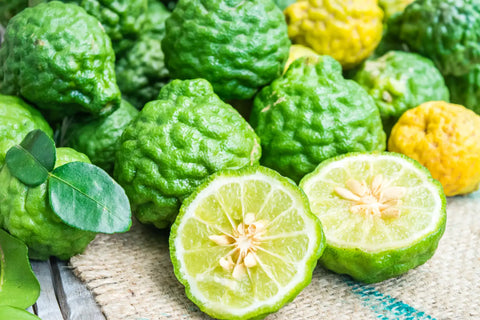
Nutrients such as vitamin C, flavonoids, and polyphenols are abundant in citrus bergamot. Antioxidants like flavonoids and polyphenols work to shield the body from the harm that free radicals can do. This fruit is a well-liked supplement for heart health because it also contains substances that have been demonstrated to have cholesterol-lowering qualities.
2. What is Citrus Bergamot Good For?
Citrus bergamot is a lesser-known citrus fruit that is gaining attention due to its potential health benefits. Here are 10 benefits of it along with an explanation of each:
Helps maintain healthy cholesterol levels: Studies have shown that this fruit may help lower LDL (bad) cholesterol levels and increase HDL (good) cholesterol levels, which could help promote heart health. [1]
Supports cardiovascular health: Its antioxidant and anti-inflammatory properties of it may help reduce the risk of heart disease by supporting healthy blood vessels and reducing inflammation. [2]
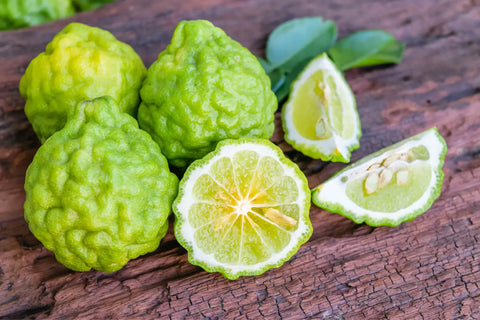
Improve blood sugar control: Some studies suggest that citrus bergamot may help improve insulin sensitivity and regulate blood sugar levels, making it a potentially helpful supplement for people with diabetes or other blood sugar issues.[3]
Aid in weight loss: Some research has found that this fruit may help support weight loss efforts by reducing inflammation and improving insulin sensitivity, which could help the body better utilize glucose and burn fat.[4]

Supports liver function: The compounds in it have been shown to help support liver function and protect against liver damage, which can be especially helpful for people with liver disease or those who consume alcohol regularly.[5]
Helps promote skin health: Citrus bergamot contains compounds that may help protect the skin from UV damage and oxidative stress, as well as reduce inflammation and improve skin barrier function.[6]
Have antimicrobial properties: This fruit has been shown to have antimicrobial properties that may help fight off harmful bacteria and viruses, potentially reducing the risk of infections.[7]

Help reduce anxiety and depression: The natural compounds in this fruit have been shown to have mood-boosting effects, which could help reduce symptoms of anxiety and depression. [8]
Have anticancer properties: Some studies have suggested that citrus bergamot may have anticancer properties, potentially inhibiting the growth and spread of certain types of cancer cells. [9]
Supports digestive health: It may help support healthy digestion by reducing inflammation in the gut and promoting the growth of beneficial gut bacteria.[10]
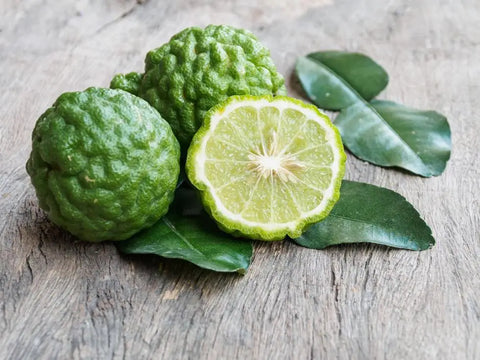
3. What Are The Side Effects Of Citrus Bergamot?
Citrus bergamot is generally considered safe for consumption when taken in recommended doses. However, some people may experience side effects, especially if they take high doses or have underlying health conditions. Here are some potential side effects of it:
Interference with medications: Citrus bergamot can interact with certain medications, including statins, which are used to lower cholesterol. It may enhance the effects of these medications and lead to muscle pain, weakness, or damage. Therefore, if you are taking any medication, you should consult your doctor before taking its supplements.
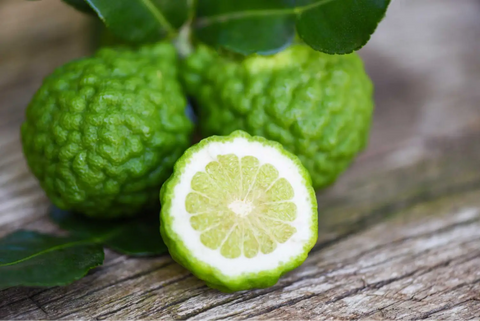
Low blood sugar: Citrus bergamot may lower blood sugar levels in some people, especially those with diabetes. This can cause symptoms such as dizziness, weakness, sweating, and confusion. If you have diabetes, you should monitor your blood sugar levels carefully while taking it.
Gastrointestinal issues: Some people may experience gastrointestinal side effects such as nausea, vomiting, and diarrhea when taking these fruit supplements.
Photosensitivity: Citrus bergamot contains furocoumarins, which can make the skin more sensitive to sunlight. This can lead to a higher risk of sunburn and skin damage, especially in people with fair skin.

Allergic reactions: Some people may develop allergic reactions to citrus bergamot, which can cause symptoms such as hives, itching, and swelling of the face, lips, tongue, or throat.
If you experience any of these side effects or other symptoms after taking it, you should stop taking it immediately and consult your doctor.
4. How to dd Citrus Bergamot Into Your Daily Routine
Here are some ways you can incorporate citrus bergamot into your daily routine:
Making tea: Start your day with a cup of bergamot tea made from leaves. This will not only give you a boost of energy but also help with digestion. You can find the full recipe here.

Topical use: Use essential oil extracted from bergamot peel in a diffuser or mix it with a carrier oil for topical use. The scent can help to reduce stress and anxiety. Discovering more about "What is bergamot essential oil used for?" here!
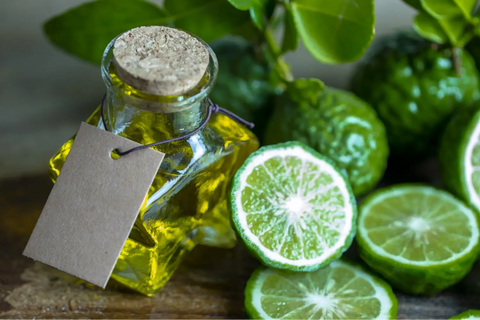
Skincare: Add citrus bergamot to your skincare routine. It has antioxidant and antibacterial properties that can help to improve the appearance of your skin. Incorporating a few drops of this oil into your regular skincare products like lotions, creams, or toners can help in treating skin issues like acne, scars, and other skin infections.

Cooking: Make a salad dressing with bergamot juice and olive oil for a refreshing and healthy addition to your meals.

5. Conclusion
So, what is citrus bergamot good for? In short, it's good for your overall health and well-being. Whether you're looking to improve your heart health, reduce inflammation, or support weight loss, adding it to your daily routine may be a simple and effective solution. So why not give it a try and see the benefits for yourself? And remember, if you're looking for high-quality fruit supplements, head over to The Rike and check out our selection today.





Leave a comment